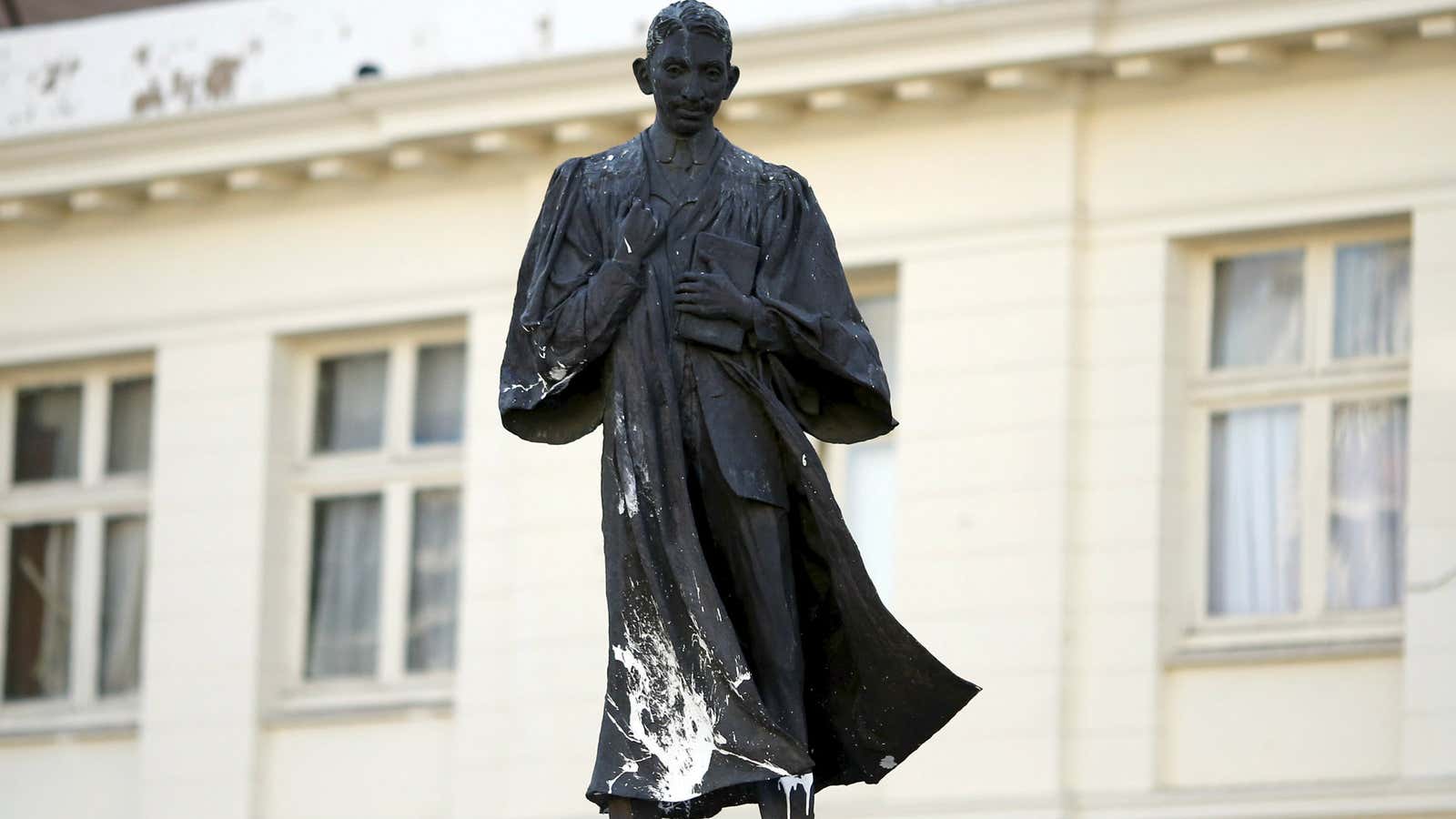During a trip to Ghana in June, Indian president Pranab Mukherjee unveiled a statue of Mahatma Gandhi at the Accra campus of the University of Ghana. But the gift quickly became a source of contention, with some Ghanaians calling for it to be taken down due to Gandhi’s contemptuous views on blacks.
Using #GandhiMustFall and #GandhiForComeDown on social media, Ghanaians began calling for the statue’s removal soon after its unveiling.
The statue was installed while the university was not in session, so protests have been largely constrained to social media. But when school started again in August, protests picked up pace. An online petition backed by academics at the university garnered over 1,300 signatures at the time of writing. Listing Gandhi’s “racist identity” as a reason for the statue’s removal, the petition cites a number of quotes by Gandhi that describe black people as inferior.
It’s not the first Gandhi statue to be protested against in Africa. Last year, a South African man was arrested and charged with vandalizing a Gandhi statue in Johannesburg. Ghana’s #GandhiForComeDown protests are also inspired by similar events in Cape Town, where the statue of British colonialist Cecil Rhodes was removed from the University of Cape Town campus last year. Protesters there argued that the Rhodes statue celebrated someone “who exploited black labour and stole land from indigenous people“.
Just as they are critical of Gandhi’s racist views, the petitioners in Ghana decry the lack of statues honoring prominent Africans on local university campuses. ”If there should be statues on our campus, then, first and foremost, they should be of African heroes and heroines who can serve as examples of who we are and what we have achieved as a people,” the petition read.
“Why should we uplift other people’s ‘heroes’ at an African university when we haven’t lifted up our own?”
